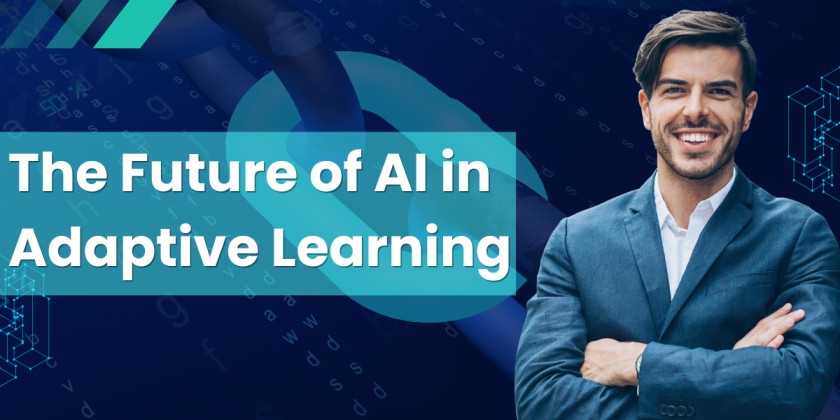Introduction
In an era defined by rapid technological advancement, the educational sector is witnessing a groundbreaking transformation through Artificial Intelligence (AI). AI-driven adaptive learning is reshaping how students interact with educational content, providing customized, real-time adjustments to each learner’s pace, style, and needs. This article delves into how AI is creating tailored learning experiences, enhancing student engagement, and optimizing educational outcomes.
What is Adaptive Learning?
Adaptive learning refers to an educational approach that dynamically adjusts to the learning needs of each individual. Unlike traditional learning models that follow a fixed curriculum, adaptive learning uses data-driven insights to customize content delivery. AI plays a crucial role here, tracking learners’ progress and tailoring the curriculum based on each learner’s strengths, weaknesses, and preferred learning styles.
In recent years, various adaptive learning platforms have emerged, incorporating AI to provide a more individualized and interactive experience. From primary education to corporate training, adaptive learning is being embraced across multiple sectors, demonstrating the versatility and potential impact of personalized learning paths.
How AI Powers Adaptive Learning
- Data Collection and Analysis: AI captures vast amounts of data on each learner, from learning speed to response accuracy, helping to create a comprehensive profile that allows for highly individualized adjustments.
- Machine Learning Algorithms: Through continuous monitoring, machine learning algorithms adapt in real-time to a student’s evolving needs, offering recommendations on resources, exercises, and assessment methods that align with their current level of understanding.
- Natural Language Processing (NLP): NLP enables the system to interpret and respond to student queries conversationally. This capability not only enhances accessibility but also allows students to engage in more intuitive, meaningful interactions with the learning platform.
These capabilities make AI a game-changer in adaptive learning, as they go beyond one-size-fits-all models, offering personalized guidance based on a learner’s unique journey.
Advantages of AI in Creating Customized Curriculums
- Personalized Learning Paths: By continuously adjusting content, AI provides each learner with a personalized roadmap, ensuring that they’re neither under-challenged nor overwhelmed. This creates an optimal environment for knowledge retention and skill acquisition.
- Enhanced Engagement and Motivation: AI can use gamification, adaptive quizzes, and feedback loops to keep learners engaged. With timely encouragement and targeted challenges, students are more likely to remain motivated throughout the learning process.
- Real-Time Progress Tracking: AI-driven systems provide ongoing progress reports, offering insights not only to students but also to educators. This allows for a timely intervention if a learner is struggling or excelling, promoting continuous improvement and adjustment.
- Scalability: AI enables adaptive learning at scale, an essential advantage for institutions and corporations looking to provide quality education across large groups without compromising on customization.
Key Technologies in Adaptive Learning
Data Analytics: Fundamental to adaptive learning, data analytics provides insights into learning patterns, enabling the system to assess each learner’s progress and adapt content accordingly.
- Recommendation Engines: Similar to streaming platforms, recommendation engines suggest learning materials based on what a student has previously learned, providing a customized learning trajectory for maximum knowledge retention.
- Content Generation AI: AI can dynamically generate or curate content to match each learner’s level and needs, delivering exercises, videos, and articles that align with their unique learning goals.
- Virtual and Augmented Reality (VR/AR): AI-powered VR and AR applications provide immersive learning experiences, especially useful in fields that benefit from hands-on experience, like healthcare and engineering.
These technologies are fundamental in creating effective adaptive learning environments, which provide varied, engaging learning paths tailored to each student.
Challenges and Considerations
Data Privacy and Security: Given the extensive data collection required for adaptive learning, privacy and security are significant concerns. Institutions must ensure compliance with data protection regulations and implement robust security measures.
Bias in Algorithms: AI algorithms may carry inherent biases that can affect the quality of the learning experience. Constant review and monitoring are essential to maintain fairness and inclusivity.
- Access and Inclusivity: Access to technology and adaptive learning platforms is often limited, creating a digital divide. Bridging this gap is essential to make AI-driven education accessible to all.
- Educator and Institutional Training: Effective use of AI-powered tools requires training for educators and administrative staff to ensure seamless integration into existing curricula.
These challenges must be addressed to optimize the implementation of adaptive learning and create an equitable educational landscape.
Future Trends in AI for Adaptive Learning
- Emotion AI and Sentiment Analysis: By analyzing student emotions, AI can detect levels of engagement, frustration, or excitement, allowing it to adjust content accordingly and provide a more supportive learning environment.
- AI-Driven Assessment and Feedback: AI can analyze test results, project strengths and areas needing improvement, and offer tailored feedback, enabling learners to address gaps in real time.
- Integration of Cross-Platform Learning: AI enables a consistent learning experience across devices, facilitating smooth transitions between different formats—like desktop, mobile, and AR/VR.
- Collaborative AI Learning Environments: With collaborative AI-assisted environments, students can learn alongside peers, fostering a sense of community and shared learning, and further promoting adaptive and engaging content.
These advancements hold significant potential for the future, making adaptive learning more holistic and fostering a supportive, interconnected learning environment.
Steps for Educational Institutions to Implement AI-Driven Adaptive Learning
- Defining Learning Objectives: Establishing clear learning objectives is essential to effectively align the AI’s capabilities with desired educational outcomes.
- Choosing the Right Tools and Platforms: Institutions should evaluate and select AI-driven platforms that cater to their specific needs, considering factors such as curriculum compatibility, data management capabilities, and user-friendliness.
- Training Educators: Teachers and administrators should receive adequate training on using adaptive learning technologies, ensuring a smooth transition and effective utilization of AI.
- Monitoring and Evaluating: Setting up robust evaluation mechanisms is crucial to track the impact and effectiveness of AI-driven learning, allowing institutions to refine their approaches over time.
A structured approach enables institutions to optimize their use of adaptive learning and make the most of AI’s transformative potential in education.
Case Studies and Real-World Examples
- Success Stories: Highlighting real-world examples where AI-powered adaptive learning has succeeded, such as increased student engagement and improved academic performance, illustrates the impact and potential of this technology.
- Key Learnings: These case studies provide valuable insights, allowing educators to understand best practices, possible pitfalls, and methods to improve their AI implementation strategies.
Examining these real-world successes underscores the versatility and efficacy of adaptive learning, as well as the importance of careful, thoughtful implementation.
Conclusion
AI-powered adaptive learning represents a revolutionary shift in education, allowing for an unprecedented level of personalization and engagement. By tailoring content and learning paths to individual needs, AI enables institutions to provide quality education at scale, equipping learners with the skills and knowledge they need to succeed.
As AI technology continues to advance, its role in shaping the future of education will only grow, making learning more accessible, interactive, and effective for students of all ages and backgrounds.




